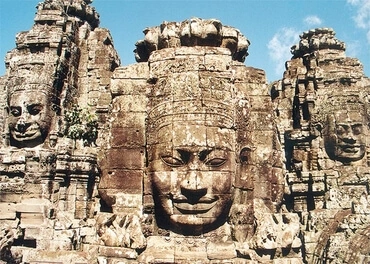1
And it was, after these words*, that they sinned, the cupbearer* of the king of Egypt and the baker, against▵ their lord, against▵ the king of Egypt.
2
And Pharaoh was··enraged over his two chamberlains, over the prince of the cupbearers, and over the prince of the bakers.
3
And he put◦ them under▫ guard in the house of the prince of the guards◦, into▵ the jail house, the place where Joseph was bound.
4
And the prince of the guards◦ appointed Joseph over them, and he ministered to them; and they were days under▫ guard.
5
And they dreamed a dream, the two of them, a man◦ his dream in one night, each man◦ according··to the interpretation of his dream, the cupbearer and the baker of the king of Egypt, who were bound in the jail house.
6
And Joseph came to▵ them in the morning, and saw them, and behold, they were gloomy.
7
And he asked the chamberlains of Pharaoh who were with◦ him under guard in the house of his lord, saying, Wherefore are your faces evil today?
8
And they said to▵ him, We have dreamed a dream and there is no interpreter of it. And Joseph said to▵ them, Do not interpretations belong to God? Recount◦ it to me, I pray◦.
9
And the prince of the cupbearers recounted◦ his dream to Joseph, and said to him, In my dream behold, a vine was before me.
10
And on◦ the vine were three tendrils, and it◦ was as though it flourished, its blossom went··up, and its clusters ripened grapes.
11
And Pharaoh’s cup was in my hand, and I took the grapes and pressed them into▵ Pharaoh’s cup, and I gave the cup upon the palm of Pharaoh’s hand.
12
And Joseph said to him, This is the interpretation of it. The three tendrils, they◦ are three days.
13
In yet three days shall Pharaoh lift··up thy head, and shall return thee to thy position◦, and thou shalt give the cup of Pharaoh into his hand, according··to the former manner* when▵ thou wast his cupbearer.
14
But◦ remember me with◦ thee when▵ it is··well for thee, and do mercy, I pray◦, with··me, and make··mention of me to▵ Pharaoh, and cause me to come··out from this house.
15
For being stolen I was stolen from the land of the Hebrews; and even here I have not done anything that they should set me in the pit.
16
And the prince of the bakers saw that he had interpreted for good, and he said to▵ Joseph, I◦ also◦ was in my dream, and behold, three baskets with··holes were on my head.
17
And in the highest◦ basket there was of all the food for Pharaoh, made by the baker; and the fowl ate them from the basket from on my head.
18
And Joseph answered and said, This is the interpretation of it. The three baskets, they◦ are three days.
19
In yet three days shall Pharaoh lift thy head from upon thee, and shall hang thee on wood*; and the fowl shall eat thy flesh from on thee.
20
And it was on the third day, the birthday of Pharaoh, and he made a feast for all his servants; and he lifted up the head of the prince of the cupbearers and the head of the prince of the bakers in the midst of his servants.
21
And he returned the prince of the cupbearers to his cupbearing; and he gave the cup on the palm of the hand of Pharaoh.
22
And he hanged the prince of the bakers; as◦ Joseph interpreted to them.
23
And the prince of the cupbearers did not remember Joseph, and he forgot him.








